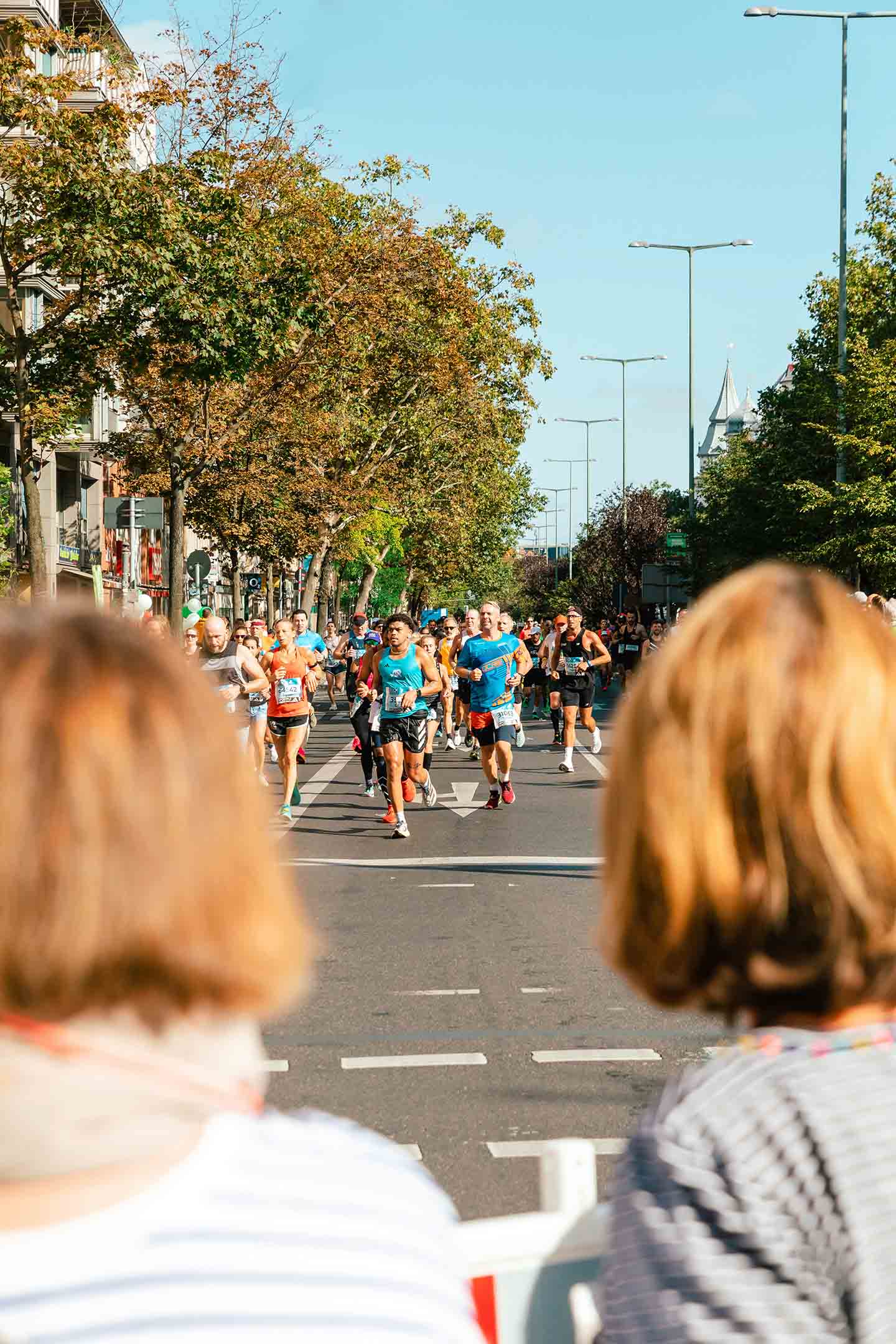Easy Marathon Training Plan

Our day-by-day, 14 week training plan is perfect for rookie marathon runners, breaking down the journey into manageable steps, and helping you build endurance safely and confidently.
Defining the Plan
The easy marathon training plan is for those that need to balance a hectic lifestyle with their training. It is not by definition an easy marathon training plan but is easier than others, as it is shorter than the other training plans and just 14 weeks in total.
It is focused on building up the stamina in a weekly long run whilst adding strength and speed through the additional training runs. The plan is designed to get you round the marathon in a time close to your best.
Pace Definitions:
- Easy = a very comfortable pace that can be easily maintained.
- Steady = a comfortable pace but requires some effort to maintain.
- 1/2 Pace = the pace at which you would aim for if racing a half marathon.
- 10k Pace = the pace at which you would aim for if racing a 10k.
- 5k Pace = the pace at which you would aim for if racing a 5k.
- Marathon Pace = the pace you want to aim for on the day of the marathon.

Cross-Training, Rest, and Recovery
Why Is Recovery Important?
Rest and recovery prevent overuse injuries, reduce fatigue, and help you absorb the benefits of your training. Every third or fourth week, reduce your running volume by 15–25% for a “down week” to allow both body and mind to recharge.
What Activities Count as Cross-Training?
- Swimming
- Cycling
- Elliptical
- Rowing
- Strength training
- Yoga or Pilates
Cross-training should be low-impact and enjoyable. It’s a chance to move without the pounding of running.
Nutrition, Hydration, and Gear
What Should I Eat During Marathon Training?
- Carbohydrates: Your main fuel source. Focus on whole grains, fruits, and vegetables.
- Protein: Essential for muscle repair. Include lean meats, dairy, legumes, and nuts.
- Fats: Healthy fats (avocado, olive oil, nuts) support hormone balance and energy.
- Hydration: Drink water throughout the day. During long runs, consider electrolyte drinks.
Experiment with nutrition during training to find what works best for you - never try new foods on race day.
What Gear Do I Need?
- Running Shoes: Invest in a quality pair suited to your gait and foot type. Visit your local Runners Need store for a gait analysis.
- Technical Clothing: Moisture-wicking shirts, shorts, and socks prevent chafing and blisters.
- Watch or App: Track your distance and pace.
- Hydration Belt or Bottle: For long runs.
- Anti-Chafe Balm: Protects sensitive areas during longer sessions.
FAQs
- Increase mileage gradually (no more than 10% per week).
- Include strength training and stretching in your routine.
- Listen to your body - rest if you feel pain or excessive fatigue.
- Wear appropriate footwear.
Don’t panic. Adjust your plan by shifting workouts or repeating a week if needed. Avoid cramming missed mileage, as this increases injury risk.
Long runs should be 60–90 seconds per mile slower than your goal marathon pace. The focus is on building endurance, not speed.
If it’s your first marathon, aim to finish rather than target a specific time. Experienced runners can use recent race times and pace calculators to estimate a realistic marathon pace.
Related Articles





